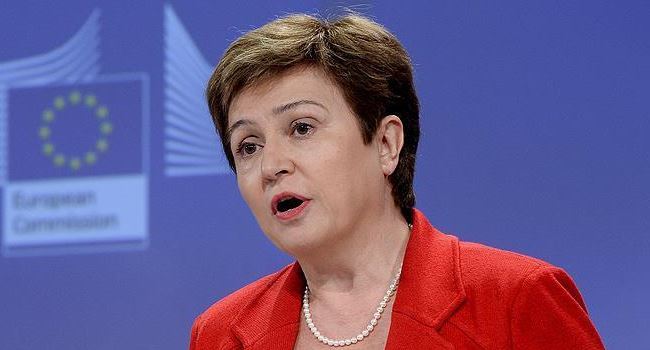Business
IMF calls for cautious reopening of economies in sub-Saharan Africa

The International Monetary Fund (IMF) has called for a cautious reopening of economies in sub-Saharan Africa considering that the novel coronavirus pandemic still poses a major threat and has the ability to spread aggressively as witnessed in some parts of the world.
It said in its regional economic outlook for sub-Saharan Africa released on Monday that region’s economy was expected to contract by 3.2 per cent in 2020, a development would contribute to poverty increase this year.
The Fund noted that even though governments had acted swiftly to support the economy, such efforts had been constrained by dwindling revenues and limited fiscal space.
The IMF stressed that the pandemic continued to represent a record health and economic crisis, with costs that would be mostly affected by the poorest segments of the world’s population.
“This is a fast-moving crisis” said Abebe Aemro Selassie, Director of the IMF’s African Department. “And recent developments suggest that the downturn will be significantly larger than we had anticipated only 10 weeks ago. The risks we highlighted in April all continue to be a concern, but the deterioration of the global outlook has been particularly striking.”
“In line with this new outlook, and consistent with local high-frequency indicators, output in Sub-Saharan Africa is now projected to shrink by 3.2 percent this year, more than double the contraction we had outlined in April. Again, this is set to be the worst outcome on record.”
Selassie observed that the pandemic was still at its exponential phase in the region with sub-Saharan Africa exceeding more than one quarter of a million confirmed cases recently and new cases still doubling every 2 to 3 weeks.
READ ALSO: IMF downgrades Nigeria’s 2020 GDP growth projection, forecasts 5.4% contraction in economy
In view of the region’s already-stretched healthcare capacity, he emphasised that the immediate priority was to still protect lives and strengthen local health systems at all costs.
“On economic policies, sub-Saharan African countries have acted swiftly and aggressively to support the economy. Monetary and prudential policies have been eased, with countries adopting a mix of reduced policy rates, added injections of liquidity, greater exchange-rate flexibility, and a temporary relaxation of regulatory and prudential norms, depending on country circumstances.
“On the fiscal side, however, country responses have often been more constrained. Even before the crisis, debt levels were elevated for many countries in the region. In this context, and in light of collapsing tax revenues, the ability of governments to increase spending has been limited.
“To date, countries in the region have announced COVID-related fiscal packages averaging 3 percent of GDP. This effort has been indispensable. But it has often come at the expense of other priorities, such as public investment, and is markedly less than the response seen in other emerging markets or advanced economies,” he said.
He recommended a number of policy priorities including preservation of health and lives, prioritisation of economic transformation, job creation and improvement of living standards among others.
urged the Nigerian government to embrace supportive strategies during the current period of the coronavirus pandemic.
The Director of the IMF Africa department, Abebe Aemro Selassie, told journalists
Join the conversation
Support Ripples Nigeria, hold up solutions journalism
Balanced, fearless journalism driven by data comes at huge financial costs.
As a media platform, we hold leadership accountable and will not trade the right to press freedom and free speech for a piece of cake.
If you like what we do, and are ready to uphold solutions journalism, kindly donate to the Ripples Nigeria cause.
Your support would help to ensure that citizens and institutions continue to have free access to credible and reliable information for societal development.
























